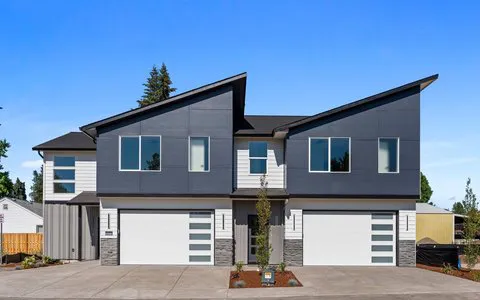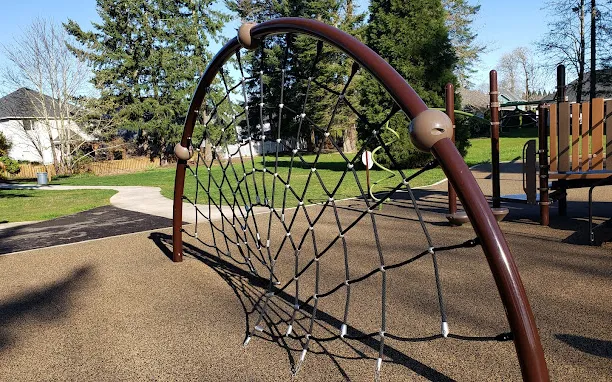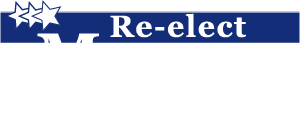What We’ve Done
Our city. Our accomplishments.

Police & Public Safety
BLANK
10 Years Ago
10 years ago, we had frozen police positions, few technology resources, no parks cameras or body cams, no way to enforce livability issues like fireworks or leash laws, and incidents of gunfire across the river into West Keizer.
Today
- Police staffing needed for a city of Keizer’s size is now budgeted and fully funded
- The cadet and reserve programs, along with active partnership with CTEC – Law Enforcement has produced the next generation of police officers and staff
- When Salem Keizer School District ended the School Resource Officer program, Keizer police worked with them to create positions of School Safety Officers for the Keizer schools to provide as much service as possible
- New technology purchased or coming on line this year, including innovative technology solutions created by Keizer police and IT staff, to add:
- Body Cams for Police
- Parks cameras in six of our heaviest utilized parks
- License plate reader technology in partnership with Salem and Marion County
- Portable drug testing equipment
- Police Chief Teague retirement after a distinguished career, followed by the successful recruitment that resulted in the promotion of Police Chief Andrew Copeland
- Successfully worked with victim and legal to put an end to rifle gunfire originating in a quarry across the river hitting homes and putting people at risk in West Keizer
- Enforceable local fireworks ordinance
- Led efforts to curb organized retail theft and gain cooperation from large retailers
- Rights of Way and Parks managed so they are used as intended, not as camps except for permitted events
- Trespass Authorization program in cooperation with the Keizer Chamber of Commerce
- Keizer remains rated one of the safest cities in Oregon
Looking Ahead
- Additional code enforcement staff needed
- Additional revenues to keep up with providing our police and staff competitive wages and benefits
- Fentanyl drug crisis, gang violence, and organized retail theft ongoing issues for our region
- Measure 110 drug decriminalization; HB 4002 recriminalization and development of deflection and drug court will take time to reduce crime

Economic Development
BLANK
10 Years Ago
10 years ago, Keizer was struggling with the just completed complex foreclosure on properties north of Keizer Station, had to repay Keizer Fire District, Salem Keizer School District and other agencies the urban renewal funds to make them whole, closed out the urban renewal district, and was required to do nothing with the land for five years. The 2008 recession was still slowing building and the tribal nations had chosen to delay Chemawa Station development. River Road Renaissance was unable to entice any additional property owners to accept city funds to improve their facades and sidewalks.
Today
- Kaiser Permanente has their medical and dental offices in Keizer Station, the primary non-retail employer in that development
- Chemawa Station opened Chick-fil-A and 7/11 and is proceeding with construction of Keizer’s third hotel and additional travel and destination facilities
- Regional brands like Waremart/Winco, Cascade Farm and Outdoor, In N Out Burger, and now Burgerville, recognize Keizer as a very desirable location and easy to work with
- The first property north of Keizer Station is now under contract for sale for battery energy storage, which will also increase Keizer’s energy resiliency
- All the complicated commercial zoning on River Road and Cherry Avenue was changed to one zone of Mixed Use to allow property owners more options to build what Keizer businesses and residents need
- River Road properties are redeveloping, using our new zoning, and bringing new or expanded businesses
- Food truck ordinance revised and simplified in 2019 to make it easier for businesses to add these popular food destinations to their locations
- Housing options expanded under HB 2001 and HB 2003 for private property to redevelop more easily
- Keizer is a welcoming city for transitional and permanent supportive housing facilities and programs in nearly every neighborhood
- Transportation projects completed: the Verda Roundabout, Chemawa Road N, new rapid flashing beacon crossings
- Helped secure $11.3M in Federal transportation grants.
Looking Ahead
Land Supply
- The shared urban growth boundary has most of the large parcels for development in Salem
- The cost of growth, in studies produced in 2018, 2019 and 2020 all indicate that UGB expansion will have an ongoing cost to current residents
- The community has been split on the UGB issue as seen in surveys and studies since 2010
- Expansion north will split Keizer students into a separate school district
- Climate Friendly and Equitable Communities: the scenario planning mandated by the Governor’s executive order and upheld by the Oregon Supreme Court will change planning requirements for Keizer with no funds to actually build any of the necessary infrastructure
- Willowlake Wastewater Treatment Facility: the zoning overlay restricting industrial development on land inside the Keizer UGB needs to be reassessed, given the new technology at the facility
- FEMA – National Flood Insurance Program changes required in a new model ordinance
Transportation
- Transportation System Plan adopted in 2009 needs funding to be updated
- Funding to finish sidewalk systems
- The Brooklake Interchange Management Plan has been approved by the Oregon Transportation Commission and needs funding to be built; this serves as Keizer second interchange
- Traffic management such as red light cameras, which are now permitted under Oregon statute, need to be explored
- Commuter Rail options that run on tracks at Keizer Station
- Full funding for the Wheatland Corridor project for sidewalks, bike lane, and turn lanes

Parks
BLANK
10 Years Ago
10 years ago, the parks had a very small budget of under $350,000. The 148 acres of Keizer Rapids Park had been added to the other 18 parks with no plans for additional funds for maintenance. Playground equipment was wearing out citywide, playgrounds used bark chips for a play surface, sports courts were in poor condition, undersized, and in short supply, and there was no money to pay the required matching funds to qualify for grants. Systems Development Charges, paid by developers, were sitting unused because there were no matching funds available. The Big Toy was about to go to construction. The Parks Master Plan, adopted in 2009, did not include projects in Keizer Little League Park.
Today
- Two years of work by Parks Board and community members connecting with people all over Keizer to listen to what the people want in their parks and how much it would cost. The result was a $4/month/household parks service fee that still keeps Keizer at one of the lowest funding rates for city parks systems and pays for maintenance, replacement and matching grant funds
- Playgrounds have new, safe equipment and rubberized fall protection surfaces that are easier to use for kids and adults with mobility needs
- Most sports courts have been rebuilt and are safe to use (Bob Newton Family Park is up next)
- Tree damage during the 2021 ice storm was taken care of more quickly with staff and funds for tree services
- Youth matching grant program for youth parks projects
- New Parks Master Plan in 2021
- New Parks Master Plan includes Keizer Little League Park; repairs, updates and professional management that costs less than paying city wages and reinvests proceeds back into the park, and stormwater projects for better drainage are being designed
- The land across Claggett Creek has been given to the city by the Herber Moore family; a project to restore the native vegetation and add a boardwalk is planned for 2025
- Keizer Rapids Park additions using our SDC funds and other funds: artificial turf fields, pickleball courts
Looking Ahead
- At what point does it make financial sense to bring all sports facility management into city staffing
- An additional city park is called for in the Parks Master Plan for the North and Northwest areas
- Additional artificial turf surfaces will be needed to extend playing season for all outdoor sports

Fiscal Management & Resources
BLANK
10 Years Ago
Ten years ago, Keizer faced the same issues with unfunded state mandates as we do today. The marijuana sales tax had just been adopted (2014) anticipating the legalization vote. New residential construction continued to cost more to provide services than covered by property tax dollars collected. Impacts from the 2008-2009 recession were still affecting the local economy. Ongoing success: The Long Range Planning Task Force created in 2008 continued to provide for community based financial decision making. And the Keizer budget document and process continued to win accounting and budgeting professional awards.
Today
- Keizer has emerged from the 2020 recession caused by the global pandemic in a stable financial position. Being focused on providing the essentials for city well being reduced financial exposure during the shutdown, and city efforts to remain as open as possible reduced costly staff turnover
- Financial drain on the General Fund from the properties north of Keizer Station has ended
- The Parks Services Fee and Police Services Fee, both passed in 2016, have stabilized funds for both of those essential services. Neither was referred and both are accounted for transparently to ensure accountability.
- Keizer’s second hotel opened in 2018, with the third expected in 2025; the Transient Occupancy Tax fund increase provides options to build and manage facilities and services that bring business and tourism to Keizer
- Funds from the first sale of land north of Keizer station will be used to pay down the PERS unfunded actuarial liability, freeing up General Fund dollars for years to come to pay for basic services; the other parcels are on the market and those proceeds are expected to be used for the same purpose
- Keizer event center rebounded after the pandemic closure, provides economic opportunity for local businesses, and is nearly self-sufficient
- ARPA funds followed established fiscal policies for one time funds to be invested for one-time expenditures as well as stabilize the police budget through the end of the Keizer Station LID in 2029; ARPA also was used to assist local negatively impacted organizations such as the Keizer Heritage Foundation and the Keizer Community Foundation
Looking Ahead
- Measure 110 passed and created a new unfunded mandate that reduced marijuana sales taxes for cities
- An ongoing thirty year error in the state of Oregon’s PERS manual was discovered last year and resulted in discovering that Keizer had incorrectly accounted for retirement accounts; a financially responsible response has been established and is moving forward
- PERS performance has been below the 8% guaranteed benefit for Tier 1 and Tier 2, so the costs continue to be extracted from the cities
- Not all utilities doing business in the public rights of way are paying their share of their costs to the taxpayers; the city needs to resume this work on this complex issue
Keizer at 30 and Keizer at 40
In the last 10 years, Keizer has worked to update, modernize and streamline the startup work done over the prior 30 years.
2024
- Neighborhood Association Ordinance – work started in 2023 (1993)
- Neighborhood Traffic Management Plan – work started in 2023 (2005)
- City phone systems and communications (some systems were over 20 years old)
- Codification of City Ordinances (1983)
- Human Resources Information System (1983)
- Procurement Policies (2008)
2023
- City Website updates (new employees hired who had those skills able to do in house)
2021
- Council approved new Council Rules and Procedures
- Parks Master Plan (2008)
2020
- Voter approved new City Charter
Cathy Clark: a decade of leadership
Elected or appointed board service
- League of Oregon Cities (2017-2019)
- LOC Policy Committees on Transportation and on Community Development (chair 2024)
- Oregon Mayors Association (2024 to present)
- LOC Women’s Caucus Board
- SEDCOR Board of Directors
- Chair of Salem Keizer Metropolitan Planning Organization for transportation since 2012
- Vice chair of Mid Willamette Valley Area Commission on Transportation since 2009
- Chair of the Mid Willamette Valley Homeless Alliance 2019-2021
- Chair of Mid Willamette Valley Council of Governments 2018-2029
James C. Richards Memorial Award, 2019 by League of Oregon Cities
Gwen VanDenBosch Leadership Award, 2021 by Mid Willamette Valley Council of Governments
